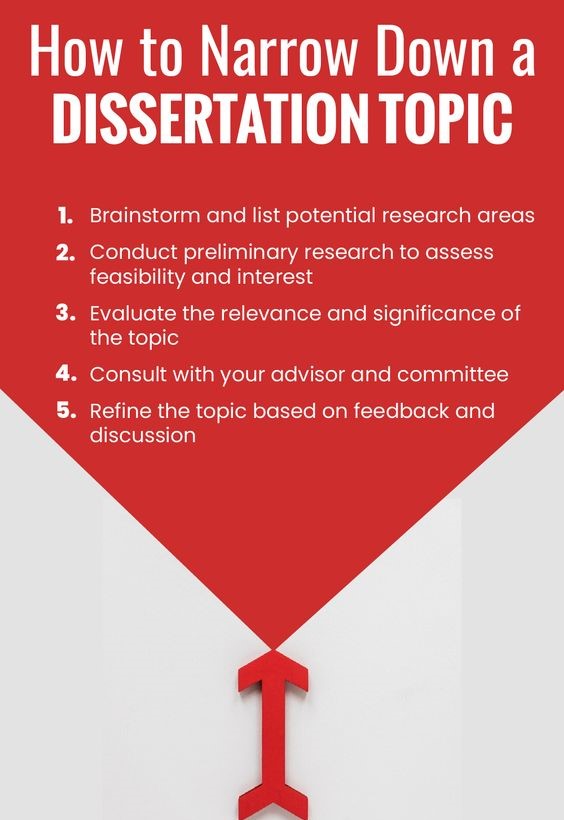
Table of Contents
The dissertation is the pinnacle of academic achievement for many, a rite of passage marked by countless hours of research, writing, and caffeine-fuelled nights. But before the journey even begins, there stands a daunting task: choosing the right dissertation topic. This decision can feel paralyzing, carrying the weight of your academic future and potentially influencing your career trajectory.
This article serves as a guide through the critical stage of dissertation writing. It offers insights and strategies to help you navigate the labyrinth and emerge with an engaging dissertation topic that will no doubt set you up for success.
What Makes a Good Dissertation Topic?

The “best” dissertation topic is subjective, but some universal qualities contribute to a rewarding and impactful research experience. A good topic is:
- Personally Engaging: Passion fuels perseverance. Choose a topic that genuinely interests you, something you’re eager to delve into, even on the toughest days.
- Researchable: Ensure your topic offers ample research material and hasn’t been exhaustively covered already. A niche within a broader field often works best.
- Manageable in Scope: A dissertation isn’t a book. Define clear boundaries to create a focused and achievable research project.
- Original and Contributes to the Field: While building upon existing research, aim for a unique angle or approach that fills a gap in knowledge.
- Feasible with Available Resources: Consider access to data, technology, or specific populations crucial to your research.
- Aligned with your Career Goals: Your dissertation can be a stepping stone. Choose a topic relevant to your future aspirations, be it academia, industry, or a specific sector.
When choosing a dissertation topic, you should also consider a subject with practical, social and academic relevance. It should be something that excites and challenges you to think outside the box.
Charting Your Course: Sources of Inspiration
The inspiration for your dissertation topic can strike from various sources. Consider these avenues to ignite your brainstorming process:
- Coursework and Class Discussions: Reflect on courses that resonated with you. Were there unanswered questions that sparked your curiosity or debates that ignited your passion?
- Academic Journals and Conferences: Explore current research in your field. Identify emerging trends, ongoing debates, or gaps in knowledge that intrigue you. For example, nursing paper samples can provide incredible resources for nursing students to generate topics for dissertations and other academic papers.
- Supervisors and Mentors: Tap into the expertise of your professors. Discuss their research interests, potential collaborations, or areas they feel deserve further exploration.
- Real-World Issues: Draw inspiration from current events, societal challenges, or practical problems within your field that call for research-based solutions.
- Personal Experiences and Observations: Your unique perspective is valuable. Have your own experiences raised questions or sparked an interest in a specific area?
Refining Your Focus: From Broad Interest to Researchable Question
Once you have a general area of interest, the next step is honing it into a focused research question.

- Start Broad, Then Narrow Down: Begin with a broad topic, then progressively narrow it down by asking yourself increasingly specific questions. For example:
- Broad: Artificial Intelligence in Healthcare
- Narrower: AI-powered Diagnostic Tools for Radiology
- Focused Question: How effective are AI-powered diagnostic tools in detecting breast cancer in mammograms compared to traditional radiologist interpretation?
- Utilize Frameworks: Consider research methodologies or theoretical frameworks that could guide your exploration. Framing your topic within these structures can add clarity and depth.
Validating Your Choice: Conducting Preliminary Research
Before committing, it’s crucial to conduct preliminary research to ensure your chosen topic is viable:
- Literature Review: Dive into existing research. Are there enough sources to support a dissertation? Has your specific question already been extensively explored?
- Data Availability: If your research involves data analysis, confirm the availability of relevant and accessible datasets.
- Methodology Feasibility: Can your research question be effectively addressed through a feasible research methodology?
Seeking Guidance: The Role of Your Supervisor
Your supervisor is your most valuable resource in the whole process of choosing a dissertation tropic and writing the paper. Supervisors offer expertise, guidance, and a sounding board for your ideas.
- Engage Early and Regularly: Don’t wait until you have a perfectly formed idea. Discuss your interests, initial thoughts, and concerns early on.
- Be Open to Feedback: Your supervisor might offer alternative perspectives or suggest refinements to your chosen topic. Embrace their expertise and be willing to adapt.
Beyond the Dissertation: The Long-Term View
Remember, your dissertation is not just a hurdle to overcome but a stepping stone towards your future goals. Consider:
- Potential Publications: A well-executed dissertation can lay the foundation for future publications, boosting your academic profile.
- Career Relevance: Choosing a topic relevant to your career aspirations can give you a competitive edge and valuable expertise in your chosen field.
The Best Dissertation Topics in 2024
The year is 2024, a time of rapid advancements in technology, evolving societal landscapes, and a pressing need for solutions to complex global challenges. Your dissertation is a chance to not only contribute to your field but also to engage with the pressing issues of our time.
Choosing the “best” dissertation topic is inherently personal and dependent on your field of study. However, identifying emerging trends and areas ripe for exploration can spark inspiration and set you on a path to impactful research. Here are some of the hot topics across various disciplines poised to dominate academic discourse in 2024:
Technology and Its Impact:
- The Ethical Implications of Artificial Intelligence: Explore bias in algorithms, data privacy concerns, or the societal impacts of AI-driven automation.
- The Metaverse and the Future of Human Interaction: Analyze the social, psychological, and economic implications of immersive virtual environments.
- Cybersecurity in a Hyper-Connected World: Investigate emerging threats, the evolving nature of cyber warfare, or strategies for strengthening digital infrastructure.
- The Role of Technology in Addressing Climate Change: Research sustainable technology solutions, the potential of green energy transitions, or the role of data analysis in climate modeling.
Business and Economics in a Transformed World:
- The Future of Work in the Age of Automation: Examine the impact of automation on employment, the rise of the gig economy, and the skills needed for future workforce success.
- Sustainable Business Practices and Corporate Social Responsibility: Analyze the growing importance of environmental, social, and governance (ESG) factors in business decision-making.
- The Evolving Landscape of Global Trade and Supply Chains: Investigate the impacts of geopolitical shifts, pandemic disruptions, and the rise of regionalization on international trade.
- Behavioral Economics and Financial Decision-Making: Explore the psychological factors influencing investment decisions, consumer behavior, or the effectiveness of financial literacy interventions.
Health, Society, and the Human Experience:
- The Long-Term Impacts of the COVID-19 Pandemic: Analyze the pandemic’s lasting effects on mental health, healthcare systems, education, or economic inequality.
- The Rise of Telehealth and Digital Health Solutions: Investigate the effectiveness, accessibility, and ethical considerations surrounding remote healthcare delivery models.
- Mental Health and Wellbeing in the Digital Age: Explore the impact of social media, online platforms, and technology use on mental health, particularly among young adults.
- Addressing Health Disparities and Promoting Health Equity: Research the social determinants of health, the impact of systemic racism on health outcomes, and strategies for achieving health equity for all populations.

Remember that interdisciplinary research is increasingly valuable. Consider combining your interests across different fields to explore novel connections and offer unique insights. For example, examining the role of AI in healthcare delivery, the ethical implications of blockchain technology, or the impact of climate change on global migration patterns.
Finding Your Niche:
The dissertation topics mentioned above provide a starting point. There are a few things that you should still do to find the perfect dissertation topic that aligns with your goals and aspirations.
- Consult with Your Advisor: Leverage their expertise to refine your interests and identify researchable questions within your chosen area.
- Conduct Thorough Preliminary Research: Ensure your chosen topic has ample research material, hasn’t been extensively covered, and aligns with your resources and timeframe.
- Choose a Topic You’re Passionate About: Your dissertation journey will be challenging. Genuine interest in your topic will fuel your motivation and lead to more impactful research.
Embracing the Journey
Choosing a dissertation topic is a process, not an overnight decision. Be patient with yourself, embrace the exploration, and trust your instincts. With careful consideration, thorough research, and open communication with your supervisor, you can confidently embark on this challenging yet ultimately rewarding academic adventure.
The year 2024 presents a unique opportunity to contribute meaningful research to a world grappling with rapid change. By embracing these emerging trends, engaging with the pressing issues of our time, and collaborating with your mentors, you can craft a dissertation that not only advances your academic career but also leaves a lasting impact on your field and beyond.
Get Professional Help with Choosing a Dissertation Topic
Although the tips discussed above can guide you in choosing dissertation topics, you may still need professional help with writing the paper. At nursingpapers, we provide all-inclusive academic writing services including topic suggestion, dissertation writing, proof reading and editing, referencing and plagiarism checker. Get in touch with our writers to order an A-level dissertation!







